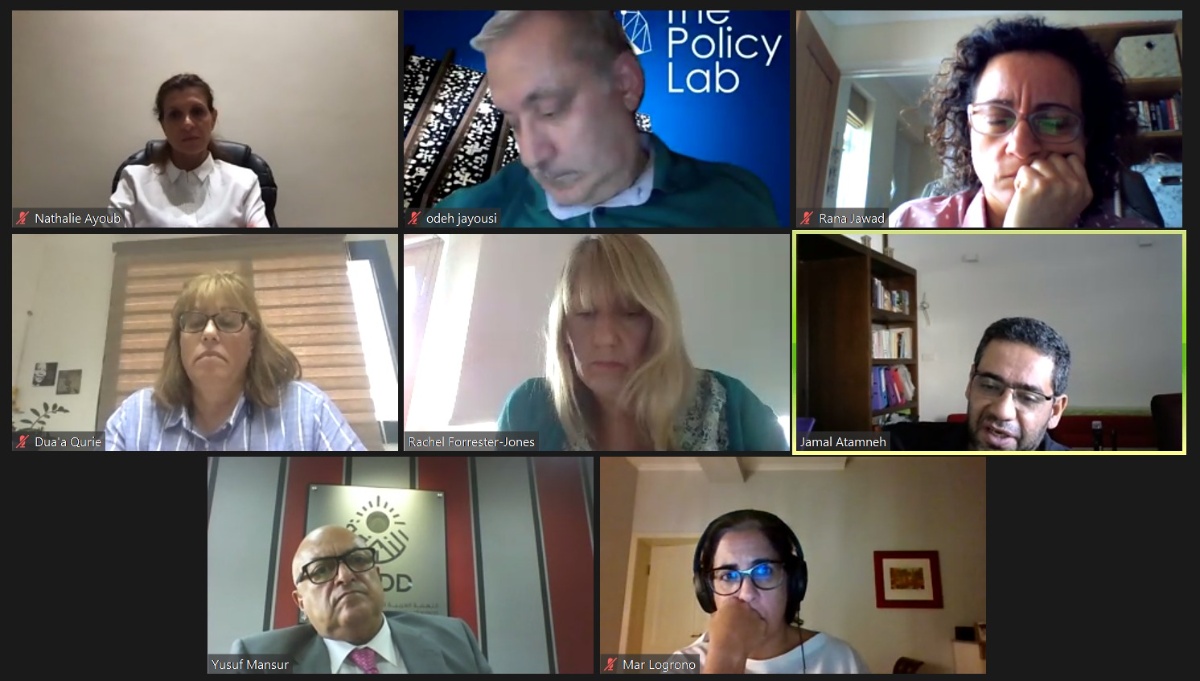The COVID-19 pandemic has had effects on almost every level of life (individual, communal, societal, national and global). Poverty and unemployment have increased and become exacerbated. In terms of protection, vulnerable groups have increased vulnerability. Initiatives to ensure or enhance social protection within the context of COVID-19 in MENA clearly portrayed the differences in experiences and needs not only within the countries, but among them as well.
In Lebanon, the absence of a structured governance increased reliance on civil society actors, and in Jordan, the multitude and steady increase of conflicting decisions and regulations showcased a lack of institutional organization and created confusion.
In Iraq, conflict exacerbated needs and increased vulnerability in parallel to the effects of the pandemic, and in Palestine, the occupation complicated response efforts in the absence of clear roles and responsibilities regarding social protection.
The COVID-19 crisis highlighted the importance of working towards comprehensive and inclusive social protection and the right to health for all as a pillar of public policy agendas.
Policy Lab is an approach that applies design thinking to policymaking. Design thinking itself is an iterative process which seeks to understand the user, challenge assumptions, and redefine problems in order to identify strategies and solutions that may not be immediately apparent.
In collaboration with the University of Bath’s Centre for the Analysis of Social Policy (CASP), the MENA Social Policy Network (MENASP) and the Arab Renaissance for Democracy and Development (ARDD) organized a new edition of MENASP’s Policy Lab on Social Protection in the Arab World online from Amman -Jordan on 22 and 24 September 2020.
This Policy Lab edition draws on ARDD Regional Dialogues Series on Social Protection in the Arab Region which was held in partnership with Ford Foundation and brought together key international and regional experts, including representatives from the civil society organizations and documented the observations and findings of the debates, to be used to suggest approaches and strategies towards mitigating the impact of COVID19 crisis.. MENA Policy Lab on Social Protection benefits from the experience of the CASP model of Policy Lab which includes service providers (health and local councils), and service users as important participants to ensure solutions are based on real-life experiences.
The lab sessions were facilitated by ARDD’s Al Nahda Centre Director Dr. Yusuf Mansur, MENASP’s Dr. Rana Jawad and CASP’s Dr. Rachel Forrester-Jone with participants from ARDD’s Regional Dialogue Series on Social Protection speakers.
The participants stressed the importance of active participation of civil society throughout the cycle of policy development and implementation as a tool for ensuring that competing interests do not overshadow the well-being of individuals and communities. They also called for bottom up approaches where the community has a say in identifying their needs and develop tools and mechanism the ensure the engagement and representation of youth in the policy making process.
In the coming months, ARDD will be continuing to develop its multi-dimensional study of the status of social protection in the Arab world which will include a chapter on this policy lab and upcoming ones.


